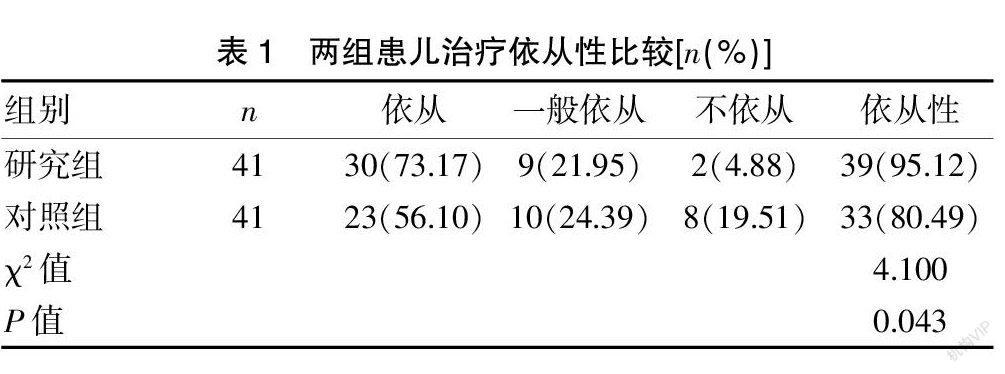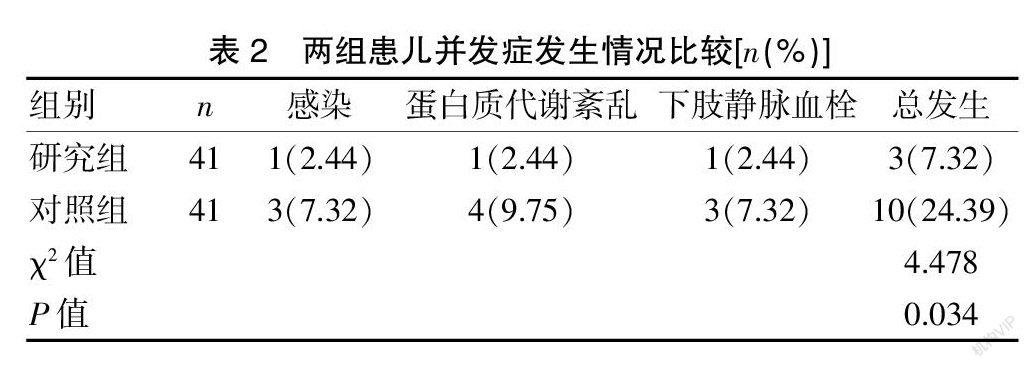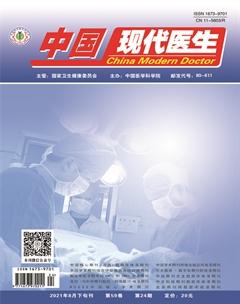以家庭為中心的護理模式對腎病綜合征患兒治療依從性、生活質量及復發的影響
薛珍 游榮楓 鄧菁



[摘要] 目的 探討以家庭為中心的護理模式對腎病綜合征患兒治療依從性、生活質量及復發的影響。 方法 選擇2017年7月至2019年7月我院收治的腎病綜合征患兒82例為研究對象,按照隨機數字表法分為兩組,每組各41例。對照組采取常規護理干預,研究組采用以家庭為中心的護理模式,觀察6個月。比較兩組患兒治療依從性、并發癥發生率、生活質量評分及復發率。 結果 研究組治療總依從率為95.12%,高于對照組的80.49%,差異有統計學意義(P<0.05);研究組并發癥總發生率、復發率為7.32%、9.76%,均低于對照組的24.39%、26.83%,差異有統計學意義(P<0.05);護理前兩組少兒主觀生活質量問卷(ISLQ)評分比較,差異無統計學意義(P>0.05);護理后研究組ISLQ評分為(172.75±14.90)分,高于對照組的(161.58±15.64)分,且兩組護理后均高于護理前,差異有統計學意義(P<0.05)。 結論 以家庭為中心的護理模式能夠提升腎病綜合征患兒治療依從性,降低并發癥發生率及復發率,改善患兒生活質量。
[關鍵詞] 腎病綜合征;以家庭為中心的護理模式;治療依從性;生活質量;復發
[中圖分類號] R47? ? ? ? ? [文獻標識碼] B? ? ? ? ? [文章編號] 1673-9701(2021)24-0168-04
Effect of the family-centered nursing mode on treatment compliance, quality of life and recurrence in children with nephrotic syndrome
XUE Zhen? ?YOU Rongfeng? ?DENG Jing
Ganzhou Maternal and Child Health Hospital in Jiangxi Province, Ganzhou? ?341000, China
[Abstract] Objective To explore the effect of family-centered nursing mode on treatment compliance, quality of life, and recurrence in children with nephrotic syndrome. Methods Eighty-two children with nephrotic syndrome admitted to our hospital from July 2017 to July 2019 were selected as study subjects. According to the random number table method, they were divided into two groups, with 41 cases in each group. The control group received the routine nursing intervention, while the study group adopted the family-centered nursing mode. They were observed for six months. Treatment compliance, complication rate, quality of life, and recurrence rate were compared between the two groups. Results The total treatment compliance rate in the study group was 95.12%, which was higher than that of 80.49% in the control group, and the difference was statistically significant(P<0.05). The total complication rate and recurrence rate in the study group were 7.32% and 9.76%, which were lower than those of 24.39% and 26.83% in the control group, and the differences were statistically significant(P<0.05). There was no statistical difference in the inventory of subjective life quality (ISLQ) scores before nursing between the two groups (P>0.05). The ISLQ score in the study group after nursing was(172.75±14.90)points, which was higher than that of (161.58±15.64)points in the control group, and the differences were statistically significant(P<0.05). After nursing, the ISLQ scores of both groups were higher than those before nursing, with statistically significant difference(P<0.05). Conclusion The family-centered nursing mode can improve the treatment compliance of children with nephrotic syndrome, reduce the incidence of complications and recurrence, and improve the quality of life of children.

